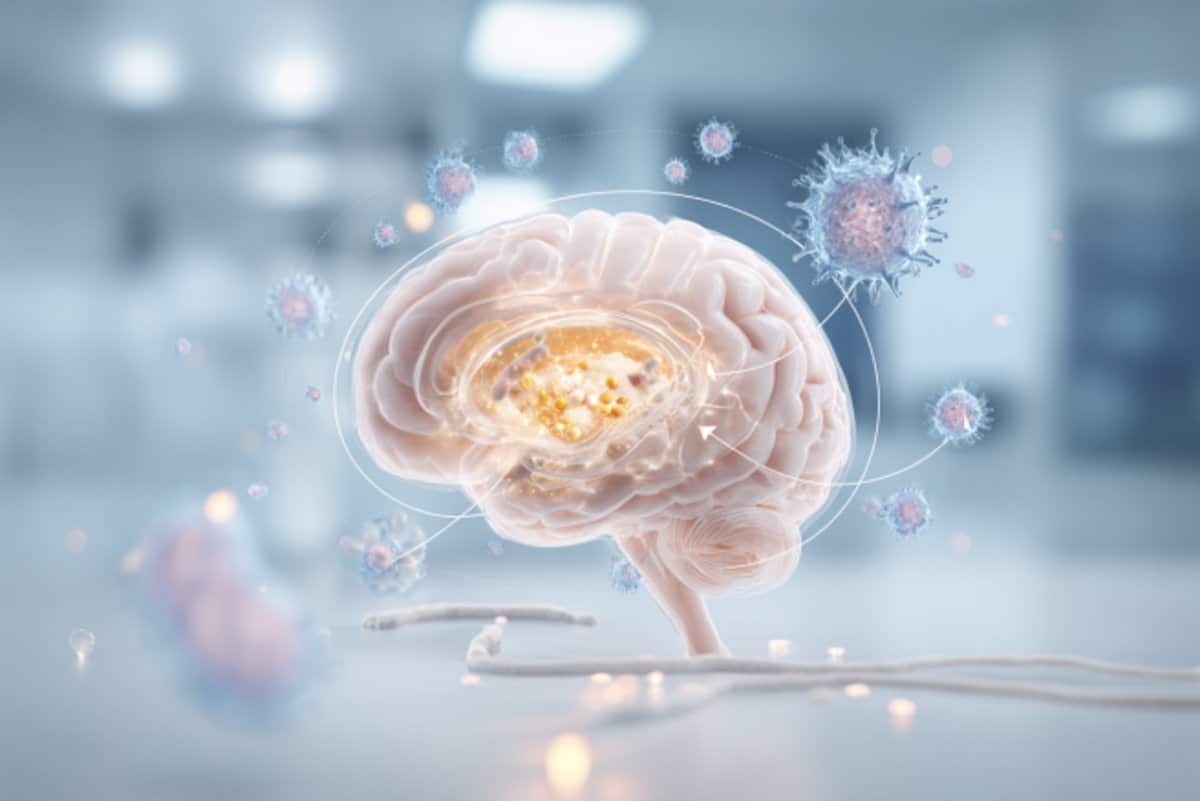Summary: New research reveals that microbes play a crucial role in shaping a newborn’s brain both before and after birth. Using a mouse model, scientists showed that the absence of maternal microbes during pregnancy led to fewer neurons in the PVN—a brain region essential for stress, social behavior, and body regulation—regardless of whether the newborn later received microbial exposure.
These effects began in the womb, suggesting that microbial signals influence brain development before birth. The findings raise important questions about how modern medical practices that alter maternal microbes might impact lifelong brain health.
Key Facts
- Prenatal Influence: Microbial effects on the brain start in the womb via maternal microbial signaling.
- Brain Region Impacted: Microbe absence reduces neuron numbers in the PVN, which regulates stress, social behavior, and vital body functions.
- Modern Practice Risks: C-section births and peripartum antibiotics may disrupt beneficial maternal microbial transfer.
Source: Michigan State University
New research from Michigan State University finds that microbes play an important role in shaping early brain development, specifically in a key brain region that controls stress, social behavior, and vital body functions.
The study, published in Hormones and Behavior, used a mouse model to highlight how natural microbial exposure not only impacts brain structure immediately after birth but may even begin influencing development while still in the womb.

A mouse model was chosen because mice share significant biological and behavioral similarities with humans and there are no other alternatives to study the role of microbes on brain development.
This work is of significance because modern obstetric practices, like peripartum antibiotic use and Cesarean delivery, disrupt maternal microbes. In the United States alone, 40% of women receive antibiotics around childbirth and one-third of all births occur via Cesarean section.
“At birth, a newborn body is colonized by microbes as it travels through the birth canal. Birth also coincides with important developmental events that shape the brain. We wanted to further explore how the arrival of these microbes may affect brain development,” said Alexandra Castillo Ruiz, lead author of the study and assistant professor in the MSU Department of Psychology.
The research team focused on a brain region called the paraventricular nucleus of the hypothalamus (PVN), which plays a central role in regulating stress, blood pressure, water balance, and even social behavior. Their previous work had shown that mice raised without microbes, or germ-free mice, had more dying neurons in the PVN during early development.
The new study set out to determine whether this increased cell death translated to changes in neuron number in the long run, and if any effects could be caused by the arrival of microbes at birth or if they began in the womb via signals from maternal microbes.
To find out, the researchers used a cross-fostering approach. Germ-free newborn mice were placed with mothers that had microbes and compared them to control groups.
When the brains of these mice were examined just three days after birth, results were striking: All mice gestated by germ-free mothers had fewer neurons in the PVN, regardless of whether they received microbes after birth. They also found that germ-free adult mice had fewer neurons in the PVN.
“Our study shows that microbes play an important role in sculpting a brain region that is paramount for body functions and social behavior. In addition, our study indicates that microbial effects start in the womb via signaling from maternal microbes,” said Dr. Castillo-Ruiz.
Rather than shunning our microbes, we should recognize them as partners in early life development,” said Dr. Castillo-Ruiz. “They’re helping build our brains from the very beginning.”
About this neurodevelopment research news
Author: Jack Harrison
Source: Michigan State University
Contact: Jack Harrison – Michigan State University
Image: The image is credited to Neuroscience News
Original Research: Open access.
“The microbiota shapes the development of the mouse hypothalamic paraventricular nucleus” by Alexandra Castillo Ruiz et al. Hormones and Behavior
Abstract
The microbiota shapes the development of the mouse hypothalamic paraventricular nucleus
Microbes massively colonize the mammalian newborn at birth. We previously reported that the microbiota influences key neurodevelopmental events, e.g., when compared to their conventionally colonized (CC) counterparts, sterile newborn mice (“germ-free” or GF) show higher cell death in the hypothalamic paraventricular nucleus (PVN).
Here, we tested the hypothesis that the microbiota, perhaps via cell death mechanisms, shapes PVN development.
To this aim, we used a cross-fostering approach that also allowed us to test whether any potential effects are influenced by microbial colonization at birth or programmed prenatally via the maternal microbiota.
Specifically, we cross-fostered GF pups to CC dams (GF → CC) immediately after birth and compared them to control groups cross-fostered within microbial status (CC → CC, GF → GF). At postnatal day 7, GF → GF and GF → CC newborns had fewer PVN cells than did CC → CC newborns, without affecting PVN volume. In a follow-up experiment, we confirmed a reduction in PVN cell number with no change in PVN volume in adult GF mice.
Thus, the greater cell death previously observed in the PVN of newborn GF mice is associated with a permanent reduction in cell number.
Because the deficit is not altered by introducing a microbiota at birth, our findings also suggest that the maternal microbiota shapes development of the PVN starting in utero.






